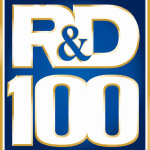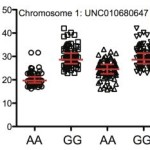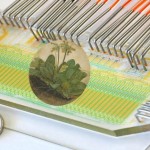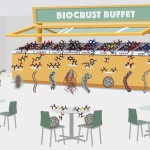Susan Celniker, Senior Scientist and Deputy Director of the Environmental Genomics & Systems Biology Division, has been honored as the recipient of the 2016 George W. Beadle Award for her outstanding contributions to the Drosophila community, in both research and service. This award was established by the Genetics Society of America (GSA) in 1999 to honor Beadle (1903–1989) who served as the President of GSA in 1946 and was a respected academic, administrator, and public servant. Celniker will be presented with this award at The Allied Genetics Conference (TAGC), July 13–17, 2016, in Orlando, Florida. Read more on GSA’s blog, Genes to Genomes.
Bowen and Lee Recipients of 2015 R&D 100 Awards
The U.S. Department of Energy (DOE)’s Lawrence Berkeley National Laboratory (Berkeley Lab) has won seven 2015 R&D 100 awards. This year’s winners include two technologies developed by researchers in the Biosciences Area. Ben Bowen of the Environmental Genomics and Systems Biology Division and Oliver Rübel of the Computational Research Division led the development of OpenMSI, a new way to analyze and visualize mass spectrometry data. Seung-Wuk Lee of the Biological Systems and Engineering Division led the development of the Sensor Integrated with Recombinant and Engineered Nanophage (SIREN) platform. SIREN uses bio-nanofilms with tunable functionality to create portable devices for detecting small molecules of interest. Read more about these and the other five R&D 100 Awards won by Berkeley Lab at the News Center.
Genetic Factors That Influence Body Weight, Neurological Disorders Identified
A new study has identified genetic factors that influence motor performance and body weight in a genetically diverse group of mice. The Lab researchers also found the genes identified in the mice overlap significantly with genes related to neurological disorders and obesity in people. Jian-Hua Mao and Antoine Snijders in the Biological Systems and Engineering Division led the Biosciences research team, which included colleagues in their division (Sasha Langley, Yurong Huang, Michael Hang, Kristofer Bouchard, and Gary Karpen) and the Environmental Genomics and Systems Biology Division (Susan Celniker and Ben Brown). Read more at the Berkeley Lab News Center.
EcoFAB: Initiative Researchers will Model Ecosystem Biology on the Bench
At a recent gathering of principal investigators in the nascent Environmental Genomics & Systems Biology (EGSB) Division of Lawrence Berkeley National Laboratory (Berkeley Lab), Interim Division Director Trent Northen announced a major initiative central to EGSB called EcoFAB.
Dirty, Crusty Meals Fit for (Long-Dormant) Microbes
To untangle the complexities of the carbon cycle, Trent Northen, Interim Division Director of Environmental Genomics & Systems Biology, is using the biocrust system to examine the specific metabolites in soil and how microbes target these compounds.
Was this page useful?








